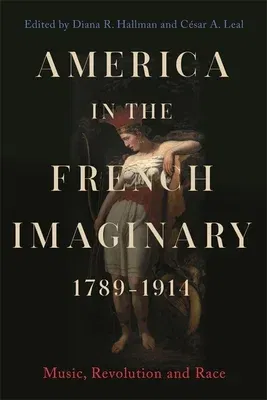Following the American Revolution, French authors often viewed the
United States as a laboratory for the forging of new practices of
liberté and égalité, in affinity with France's own Revolutionary ideals
but in competition with lingering anti-American depictions of an
inferior, untamed New World.
The volume examines French imagining of America through
musical/theatrical portrayals of the American Revolution and Republic,
soundscapes of the Statue of Liberty, homages to Washington, Franklin
and Lafayette and negotiations of Francophone identity in New Orleans.
The subject of race features prominently in paradoxical depictions of
slavery, freedom, and revolution in the United States and French
Caribbean colonies of 'Amérique' and in varied interpretations of
American music and gendered identity. Essays consider French
constructions of the Indigenous American and Black American 'exotic'
that intersect with tropes of noble, pastoral savagery, menacing
barbarism and the 'civilising' potency of French culture. Such French
constructions reveal both a revulsion of racial alterity and an
attraction to the expressive, even subversive, freedom of Americanness.
Investigations of French conceptions of America extend to critiques of
American orchestral music, Gottschalk's Louisianan-Caribbean Creole
works, Buffalo Bill's spectacles and the cakewalk in Paris. With
scholarly contributions on music, dance, theatre and opera, the volume
will be essential reading for students and scholars of these
disciplines.

